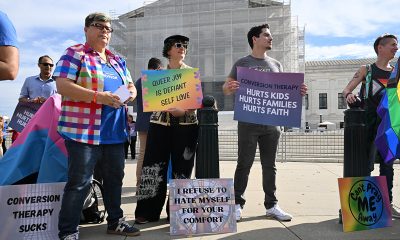a&e features
The overshadowed LGBT fight for ‘normality’
Upcoming doc examines protests against the American Psychiatric Association

Barbara Gittings, Frank Kameny and John Fryer, who’s in disguise. (Photo by Kay Tobin Lahusen via Wikimedia Commons)
For decades, the American Psychiatric Association (APA) labeled homosexuality a mental illness, thereby justifying the criminalization of homosexuality and permitting discriminatory practices against gay men and lesbians by government agencies, businesses, schools and churches repulsed by those branded “sick” and “perverted.”
But homosexuality was also believed to be a deviant behavioral choice that could be “cured” through medical and psychological treatments such as electroshock, chemical castration, ice pick lobotomies or aversion “therapy” akin to the torture in “A Clockwork Orange.”
Not all mental health professionals thought gay people were degenerates. In 1953, with Republican Sen. Joe McCarthy in his prime demagogically chasing down and destroying communists (the “Red Scare”) and homosexuals (the “Lavender Scare”), Evelyn Hooker, Ph.D., sought funding from the National Institute of Mental Health to research “normal homosexuals,” prompted by her close friendship with a former UCLA student, Sam From. Through him, she gained access to Los Angeles’s secret gay subculture and volunteers from the Mattachine Society. Hooker’s presentation at the APA’s annual convention in 1956 was groundbreaking — there was no scientific data on gay people who were not incarcerated or in mental wards. The result: expert clinicians could not distinguish between gay men and straight men, findings that were soon validated by other researchers.
But the APA did not remove homosexuality from its Diagnostic and Statistical Manual III until 1973. “Cured,” an in-production documentary directed by award-winning filmmakers Patrick Sammon and Bennett Singer, details the story of how LGBT activists joined forces with other minority groups and allies to take on the psychiatric establishment in the late 1960s and early 1970s to change the manual.
As befitted the time of upheaval with students protesting the war in Vietnam and civil rights groups morphing into liberation movements, the fights against the APA were not quiet. One of the first demonstrations was staged in San Francisco by 20 members of the Gay Liberation Front and Women’s Liberation Movements. “It put the psychiatrists on notice,” Sammon said, “that gays and lesbians were fighting back. It really was the start of the outside activism that put attention and pressure on this issue.”
From California, protests spread to other cities, such as Chicago and New York.
“The interesting thing about this is there was no coordinated strategy, in terms of one person deciding what would happen. It was a grassroots effort,” Sammon says. “That was an important piece of the equation that we discovered during the research process.”
But there were pioneering leaders with vision from Barbara Gittings of the New York chapter of the Daughters of Bilitis; Frank Kameny, co-founder with Jack Nichols of the Washington, D.C. branch of the Mattachine Society; and Morris Kight and Don Kilhefner, co-founders of the Gay Liberation Front/L.A., who disrupted APA conferences by stealing the emcee’s microphones and challenging the participants. In 1972, gay psychiatrist Dr. John Fryer had enough and spoke out, albeit with his face disguised in a mask and voice distorted over the microphone. Nonetheless, “Dr. Henry Anonymous,” as he presented himself, gave such as impactful speech, history has often credited him with getting homosexuality de-listed from the manual in 1973.
Sammon believes that much of the progress in the struggle for LGBT rights — for social, legal, and political equality — was made possible by this victory in 1973 over the APA. While still largely overlooked in LGBT history, the campaign challenging the APA represents a remarkable story of diligence and courage in the face of powerful institutional resistance.
Singer also notes that “Cured” looks at how the modern LGBT rights movement continued after Stonewall.
“How did the spark that was ignited at Stonewall and other uprisings around the country get channeled? What was the next stage of activism,” Singer says.
Sammon hopes older LGBT audiences will see an accurate reflection of their lived experiences, of the pain caused by the message from scientific and medical institutions that they were sick.
“If from the age of 12 or 13,” he told the Los Angeles Blade in a June 19 interview, “everything you read or everything you’re told is that you’re mentally ill, that starts to impact you. That starts to affect your self-esteem. It causes internalized homophobia.”
In the years since, leading organizations representing scientists and physicians have uniformly denounced treatments intended to change a patient’s sexual orientation or gender identity. More recent progress on this front includes the decision by the World Health Organization to remove gender incongruence from the mental disorders listed in its International Classification of Diseases (ICD), the 11th revision of which was released June 18.
However, despite this, disproven pseudo-scientific ideas about the mental health of LGBT people are still used to support so-called “conversion” or “reparative therapy,” religious-based counseling and other harmful sexual orientation change efforts (SOCE).
The campaign against the label of mental illness chronicled in “Cured” is not “a relic from history,” Singer says. “People are still clinging to this junk science that’s being held up to give LGBTQ people this bogus sense that they can change, that they should change and that homosexuality is a choice.”
Sammon agrees: “The roots of this mental illness label are ideas that are still parroted by people who believe in conversion therapy,” he says. “Hopefully, this film — while not specifically about that issue (of conversion therapy) — can help illuminate that ongoing discussion, while weakening this argument that LGBT people have chosen to be the way that they are.”
“There’s still a learning curve when it comes to these fundamental issues,” Singer says. “We’re seeing it with the attempt to roll back the Pentagon’s policy on trans service members, with ongoing opposition to marriage, with bathroom bills … many of these positions come from prejudice based on junk science and religious belief.”
“Cured” is a warning that the fight for equality is ongoing, that progress can be ephemeral. It’s also an homage to the activists who sacrificed much but recognized the importance of the fight.
“I hope older audiences, through the film, will receive some appreciation for the work they did to get us to the point where we are now,” Sammon says. “There are so many people who helped in so many ways, and this is a way to honor them.”
Charles Francis, president of the Mattachine Society of Washington, told the L.A. Blade that they decided to sign on as financial sponsors of “Cured” because the film debunks the myth that the LGBT community has won the battle against those who wish to call them mentally ill.
“It’s a myth,” Francis says, “because not only was it hell to accomplish this thing (striking homosexuality from the manual), with real community activism, but even today the debate is not over. Our enemies are making the case they we are somehow spiritually or psychologically broken, even now in 2018.”
At the Mattachine Society, Francis is engaged in historical research about the institutionalization of LGBT people in places like St. Elizabeth’s hospital in Washington, where the APA’s mental illness label and legislation like the District’s Sexual Psychopath Act of 1948, resulted in people being subjected to “treatments” that included icepick lobotomies, hysterectomies, and castration.
Even today, Francis warns, mythical ideas about LGBT mental illness have lead to young LGBT people being put in harm’s way. Among the most troubling recent examples are reports of young people who have died as a result of abuse incurred at residential programs associated with the billion dollar “troubled teen industry,” a sexual orientation change effort into which youth are sometimes enrolled by their parents.
“This movie is not just for gay history geeks,” Francis says. “I think all activists, all audiences, all people concerned with the Trump-Pence Administration would do well to see this movie and to see how old school community activism works. Getting out into the streets, into the communities, convincing people, making the arguments…this is an early example of passionate, community-based activism. I think it’s a movie for everybody, especially in these challenging times.”
After its 1973 decision, the APA came out against discrimination based on sexual orientation in employment (1988) and in the armed forces (1990). Then, in 1998, the organization issued statements that opposed psychiatric treatments that are based on the view of homosexuality as a mental disorder and are administered to “change” the patient’s sexual orientation.
The mainstream medical establishment is now allied with efforts to protect young LGBT people from conversion therapy, which marks a significant step forward. Interestingly, science and medicine have recently been harnessed to oppose these practices from a different angle.
A bill spearheaded by Equality California and introduced by out Assembly member Evan Low would include, among the business practices outlawed under California’s Consumer Legal Remedies Act, the sale of therapies that constitute sexual orientation change efforts because research indicates they are ineffective.
“The bill does one thing and one thing only” says Low, in a press release. “It declares conversion therapy (for money) for what is, a fraudulent practice.”
The directors hope to release “Cured” in 2019, the 50th anniversary of the Stonewall Riots.
a&e features
Queer highlights of the 2026 Critics Choice Awards: Aunt Gladys, that ‘Heated Rivalry’ shoutout and more
Amy Madigan’s win in the supporting actress category puts her in serious contention to win the Oscar for ‘Weapons’
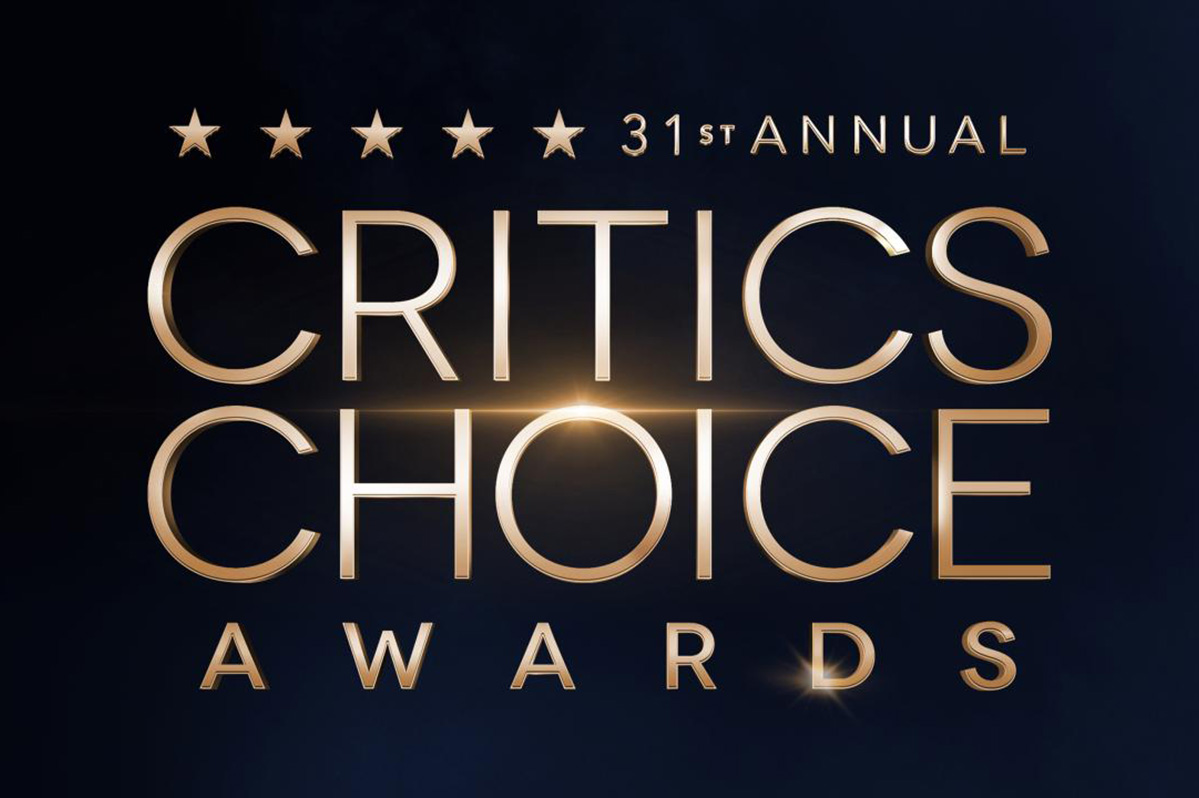
From Chelsea Handler shouting out Heated Rivalry in her opening monologue to Amy Madigan proving that horror performances can (and should) be taken seriously, the Critics Choice Awards provided plenty of iconic moments for queer movie fans to celebrate on the long road to Oscar night.
Handler kicked off the ceremony by recapping the biggest moments in pop culture last year, from Wicked: For Good to Sinners. She also made room to joke about the surprise hit TV sensation on everyone’s minds: “Shoutout to Heated Rivalry. Everyone loves it! Gay men love it, women love it, straight men who say they aren’t gay but work out at Equinox love it!”
The back-to-back wins for Jacob Elordi in Frankenstein and Amy Madigan in Weapons are notable, given the horror bias that awards voters typically have. Aunt Gladys instantly became a pop culture phenomenon within the LGBTQ+ community when Zach Cregger’s hit horror comedy released in August, but the thought that Madigan could be a serious awards contender for such a fun, out-there performance seemed improbable to most months ago. Now, considering the sheer amount of critics’ attention she’s received over the past month, there’s no denying she’s in the running for the Oscar.
“I really wasn’t expecting all of this because I thought people would like the movie, and I thought people would dig Gladys, but you love Gladys! I mean, it’s crazy,” Madigan said during her acceptance speech. “I get [sent] makeup tutorials and paintings. I even got one weird thing about how she’s a sex icon also, which I didn’t go too deep into that one.”
Over on the TV side, Rhea Seehorn won in the incredibly competitive best actress in a drama series category for her acclaimed performance as Carol in Pluribus, beating out the likes of Emmy winner Britt Lower for Severance, Carrie Coon for The White Lotus, and Bella Ramsey for The Last of Us. Pluribus, which was created by Breaking Bad’s showrunner Vince Gilligan, has been celebrated by audiences for its rich exploration of queer trauma and conversion therapy.
Jean Smart was Hack’s only win of the night, as Hannah Einbinder couldn’t repeat her Emmy victory in the supporting actress in a comedy series category against Janelle James, who nabbed a trophy for Abbott Elementary. Hacks lost the best comedy series award to The Studio, as it did at the Emmys in September. And in the limited series category, Erin Doherty repeated her Emmy success in supporting actress, joining in yet another Adolescence awards sweep.
As Oscar fans speculate on what these Critics Choice wins mean for future ceremonies, we have next week’s Golden Globes ceremony to look forward to on Jan. 11.
a&e features
Looking back at the 10 biggest A&E stories of 2025
‘Wicked,’ Lady Gaga’s new era, ‘Sexy’ Bailey and more
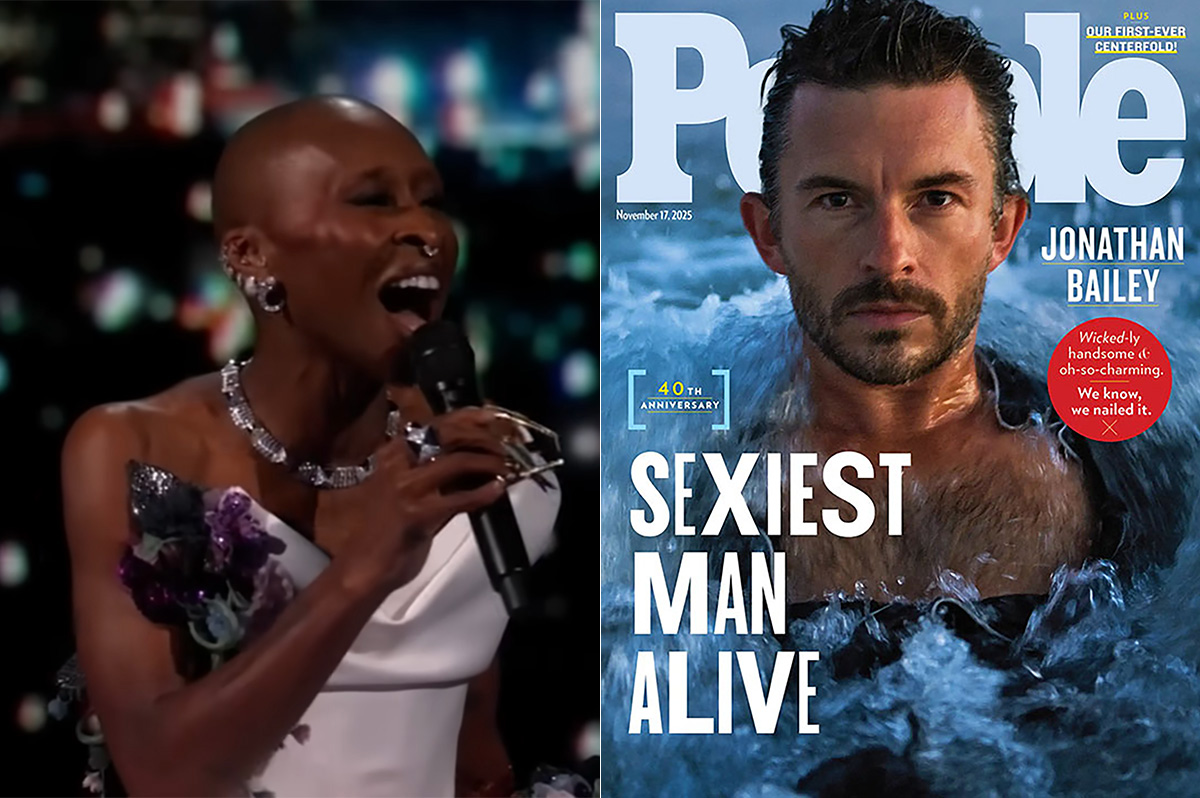
Although 2025 was a year marked by countless attacks on trans rights and political setbacks, the year also saw brilliant queer artists continuing to create art. From Cannes and Sundance Award winners now vying for Oscar consideration to pop icons entering new stages of their careers, queer people persevered to tell their stories through different media.
With the state of the world so uncertain, perhaps there’s no more vital time to celebrate our wins, as seen through some of this year’s top pop culture moments. While there’s no collection of 10 stories that fully encompass “the most important” news, here are some events that got the gays going:
10. ‘Mysterious Gaze of the Flamingo’ wins big at Cannes
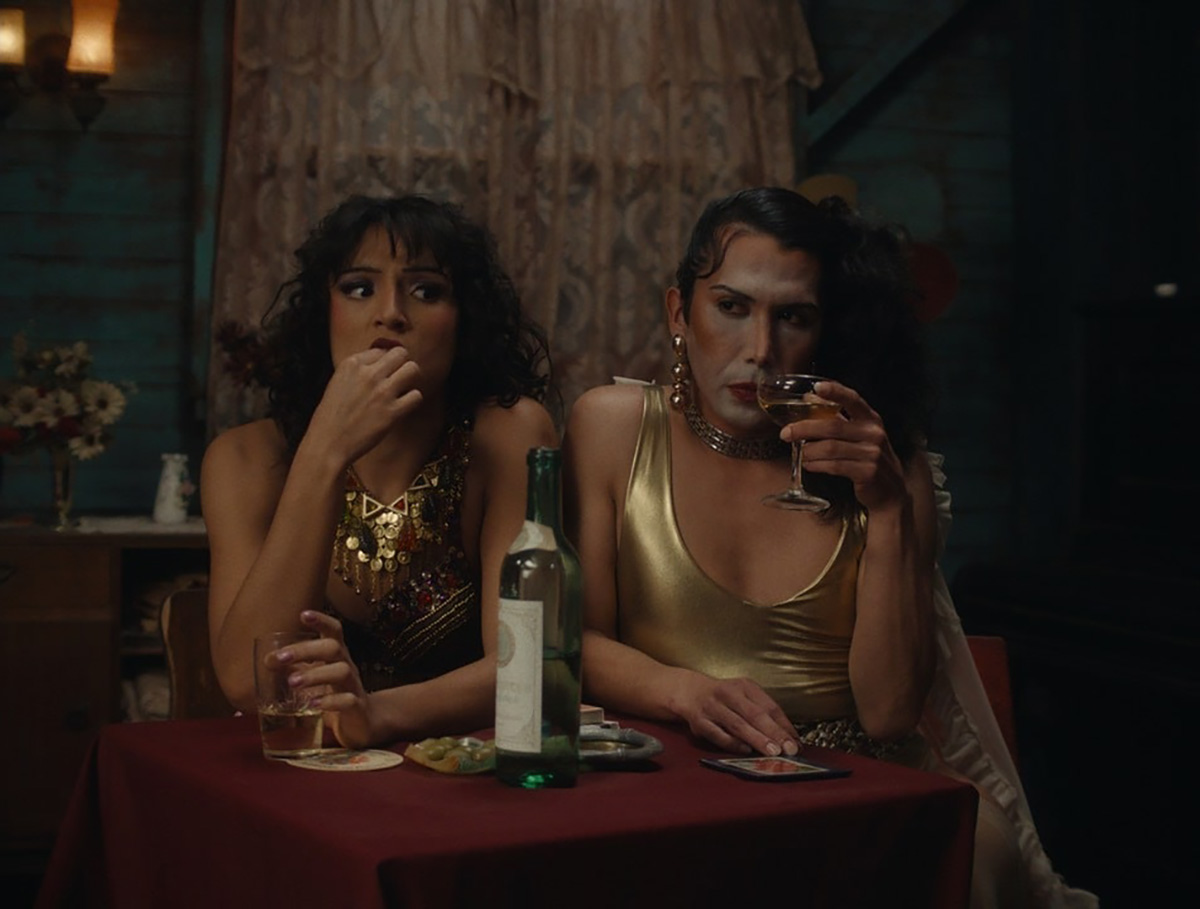
The Cannes Film Festival has become a crucial start for films hoping to make their way to the Oscars, and first-time director Diego Céspedes won the top Un Certain Regard prize for his intimate western “The Mysterious Gaze of the Flamingo.” The film is set in the ‘80s and is intended as an allegory for the AIDS epidemic. Seeing a film that unpacks vital queer history win one of the most coveted awards at Cannes has been a huge point of pride in the independent filmmaking community.
Since the film bowed at Cannes, it has been selected as Chile’s Oscar entry in the Best International Feature race. Speaking with The Blade during the film’s AFI Fest run in October, Céspedes said: At first, I was kind of scared to have this campaign position in the times that we’re living [in] here. But at the same time, I think the Oscars mean a huge platform — a huge platform for art and politics.”
9. ‘The Last of Us’ returns for an even gayer season 2
While the first season of The Last of Us gave us one of TV’s most heartbreaking queer love stories in the episode “Long, Long Time,” Season 2 doubled down on its commitment to queer storytelling with the blossoming relationship between Ellie (Bella Ramsey) and Dina (Isabela Merced). The show expanded on the pair’s relationship in the original video game, making it perhaps the central dynamic to the entire season. That unfortunately came with more homophobic backlash on the internet, but those who checked out all the episodes saw a tender relationship form amid the show’s post-apocalyptic, often violent backdrop. For their performance, Ramsey was once again nominated for an Emmy, but Merced deserved just as much awards attention.
8. ‘Emilia Pérez’ sparks controversy
Jacques Audiard’s genre-bending trans musical “Emilia Pérez” proved to be an awards season juggernaut this time last year, winning the Golden Globe for Best Musical/Comedy. But when the lead star Karla Sofia Gascón’s racist, sexist, and homophobic old tweets resurfaced, the film’s Oscar campaign became a tough sell, especially after Netflix had tried so hard to sell Emilia Pérez as the “progressive” film to vote for. Mind you, the film had already received significant backlash from LGBTQ+ audiences and the Mexican community for its stereotypical and reductive portrayals, but the Gascón controversy made what was originally just social media backlash impossible to ignore. The only person who seemed to come out of the whole debacle unscathed was Zoe Saldaña, who won the Oscar for Best Supporting Actress over Ariana Grande.
7. ‘Sorry, Baby’ establishes Eva Victor as major talent
Back in January at the Sundance Film Festival, Eva Victor (known by many for her brand of sketch comedy) premiered their directorial debut “Sorry, Baby” to rave reviews, even winning the Waldo Salt Screening Award. Victor shadowed Jane Schoenbrun on the set of “I Saw the TV Glow,” and seeing Victor come into their own and establish such a strong voice immediately made them one of independent cinema’s most exciting new voices. A memorable scene in the film sees the main character, Agnes (played by Victor), struggling to check a box for male or female, just one example of how naturally queerness is woven into the fabric of the story.
Most recently, Victor was nominated for a Golden Globe for her performance in the film, and she’s represented in a category alongside Jennifer Lawrence (“Die My Love”), Jessie Buckley (“Hamnet”), Julia Roberts (“After the Hunt”), Renate Reinsve (“Sentimental Value”) and Tessa Thompson (“Hedda”). The film also received four Independent Spirit Award nominations overall.
6. Paul Reubens comes out in posthumous doc
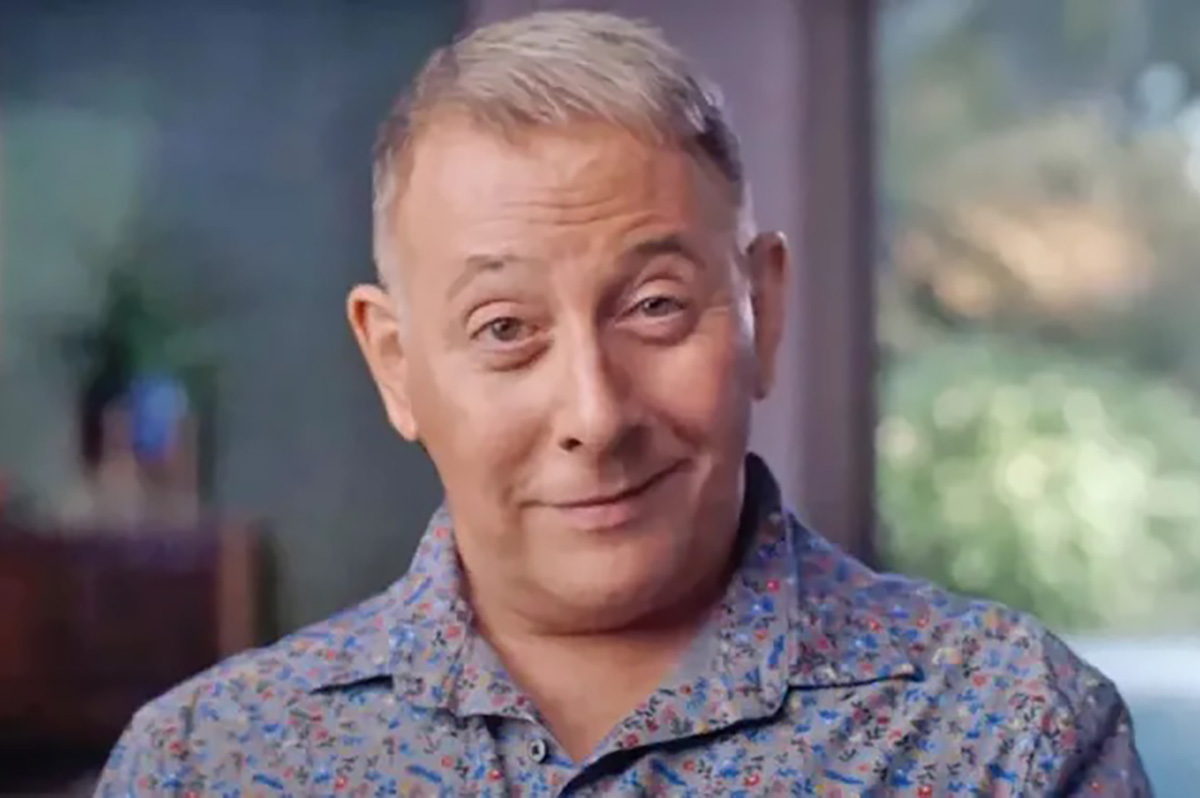
While Paul Reubens never publicly came out as gay before passing away in 2023, the two-part documentary “Pee-wee as Himself” premiered back in May on HBO Max, giving the legendary comedian a chance to posthumously open up to the world. Directed by Matt Wolf, the documentary explores how Reubens found his alter ego Pee-Wee Herman and why he kept his private life private.
The documentary won an Emmy in the Outstanding Documentary or Nonfiction Special category and remains one of the most critically acclaimed titles of the year with a 100% Rotten Tomatoes score. Also worth noting, the National Geographic documentary Sally told the posthumous coming out story of Sally Ride through the help of her long-time partner, Tam O’Shaughnessy.
5. Lady Gaga releases ‘Mayhem’
Lady Gaga entered a new phase of her musical career with the release of Mayhem, her seventh album to date. From the frenzy-inducing pop hit Abracadabra to the memorable Bruno Mars duet featured on “Die With a Smile,” seeing Gaga return to her roots and make an album for the most die-hard of fans was especially rewarding after the underwhelming film releases of “House of Gucci” and “Joker: Folie à Deux.” Gaga has been touring with The Mayhem Ball since July, her first arena tour since 2018. She even extended her tour into 2026 with more North American dates, so the party isn’t stopping anytime soon. And Gaga is even set to make an appearance next May in “The Devil Wears Prada 2.”
4. Cynthia Erivo, Ariana Grande perform at the Oscars
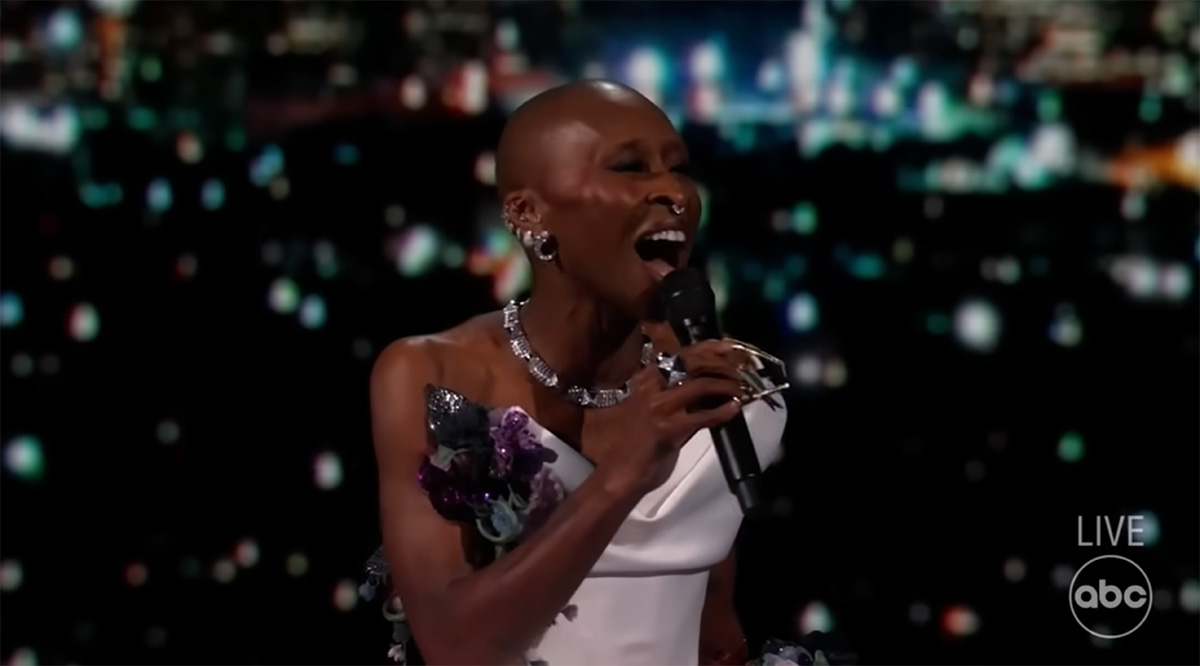
While “Wicked: For Good” didn’t quite reach the heights of the first film, we will forever have Cynthia Erivo and Ariana Grande’s breathtaking live performance that opened the 97th Academy Awards. The pair sang a rendition of “Over the Rainbow,” “Home,” and “Defying Gravity,” paying proper homage to the original 1939 “Wizard of Oz.” Even non-Wicked fans can’t deny how magical and brilliantly staged this performance was. With both Erivo and Grande up for acting Oscars last year, they’re hoping to repeat success and make history with consecutive nominations. Either way, let’s hope there’s another live performance in the making, especially with two new original songs (The Girl in the Bubble and No Place Like Home) in the mix.
3. Indya Moore speaks out against Ryan Murphy
Indya Moore has consistently used social media as a platform for activism, and in September, posted a 30-minute Instagram live speaking out against “Pose” co-creator Ryan Murphy. Moore claimed that Murphy wasn’t being a true activist for trans people. “Ryan Murphy, we need you to do more. You need to address the racism, the violence, and the targeting of people on your productions, Ryan Murphy. You do need to make sure trans people are paid equally. Yes, Janet did the right thing,” Moore said. Murphy was also back in the headlines this year for the critically panned “All’s Fair” and the controversial “Monster: The Ed Gein Story” starring Laurie Metcalf and Charlie Hunnam.
2. Cole Escola wins Tony for Best Leading Actor
Few pop culture moments this year brought us together more than Cole Escola winning a Tony award for “Oh, Mary!” the Broadway show they created, wrote and starred in (we love a triple threat!) Escola made history by becoming the first nonbinary person to win a Tony in the leading actor category, and seeing them excitedly rush to the stage wearing a Bernadette Peters-inspired gown instantly became a viral social media moment.
The cherry on top of Escola’s major moment is the recent news that they are writing a Miss Piggy movie with Jennifer Lawrence and Emma Stone producing — news that also broke the internet for the better. We cannot wait!
1. Jonathan Bailey makes gay history as ‘Sexiest Man Alive’
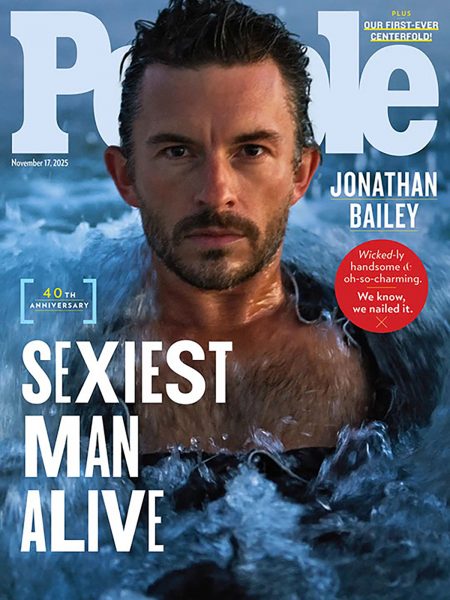
The same year as his on-screen roles in blockbusters “Jurassic World Rebirth” and “Wicked: For Good,” Jonathan Bailey made history as the first openly gay man to be named People magazine’s “Sexiest Man Alive.” The fact that it took 40 years for an openly gay man to earn the title is a signifier of how far we still have to go with queer representation, and seeing Bailey celebrated is just one small step in the right direction.
“There’s so many people that want to do brilliant stuff who feel like they can’t,” he told PEOPLE, “and I know the LGBT sector is under immense threat at the moment. So it’s been amazing to meet people who have the expertise and see potential that I could have only dreamed of.” In 2024, Bailey founded the charity titled The Shameless Fund, which raises money for LGBTQ+ organizations.
a&e features
Your guide to D.C.’s queer New Year’s Eve parties
Ring in 2026 with drag, leather, Champagne, and more
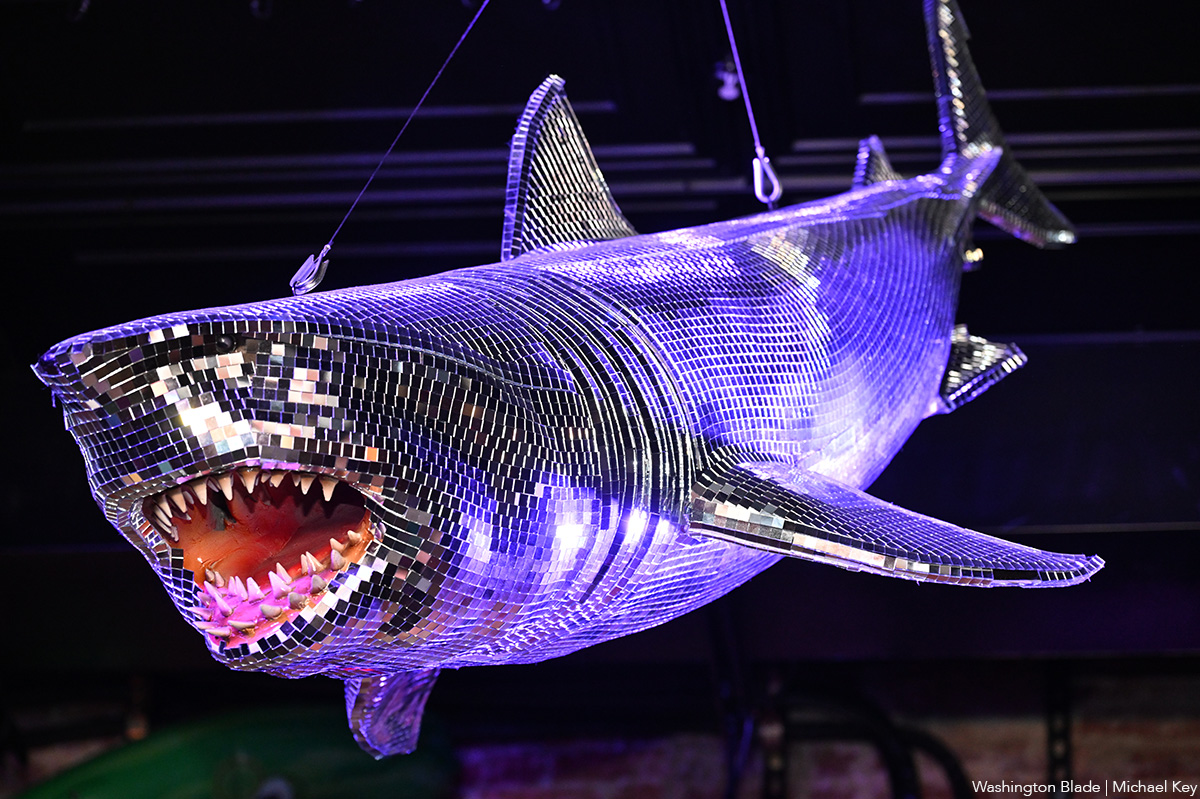
With Christmas in the rear view mirror, we can turn our attention to ringing in a much-anticipated New Year with a slew of local LGBTQ parties. Here’s what’s on tap.
Pitchers
This spacious Adams Morgan bar is hosting the “Pitchers’ Perfect New Year’s Eve.” There will be a midnight Champagne toast, the ball drop on the big screens, and no cover, all night long. The bar doesn’t close until 4 a.m., and the kitchen will be open late (though not until close). All five floors will be open for the party, and party favors are promised.
Trade
D.C.’s hottest bar/club combo is leaning into the Shark motif with its NYE party, “Feeding Frenzy.” The party is a “glitterati-infused Naughty-cal New Year’s Even in the Shark Tank, where the boats are churning and the sharks are circling.” Trade also boasts no cover charge, with doors opening at 5 p.m. and the aforementioned Shark Tank opening at 9 p.m.. Four DJs will be spread across the two spaces; midnight hostess is played by Vagenesis and the two sea sirens sensuously calling are Anathema and Justin Williams.
Number Nine
While Trade will have two DJs as part of one party, Number Nine will host two separate parties, one on each floor. The first floor is classic Number Nine, a more casual-style event with the countdown on TVs and a Champagne midnight toast. There will be no cover and doors open at 5 p.m. Upstairs will be hosted by Capital Sapphics for its second annual NYE gathering. Tickets (about $50) include a midnight Champagne toast, curated drink menu, sapphic DJ set by Rijak, and tarot readings by Yooji.
Crush
Crush will kick off NYE with a free drag bingo at 8 p.m. for the early birds. Post-bingo, there will be a cover for the rest of the evening, featuring two DJs. The cover ($20 limited pre-sale that includes line skip until 11 p.m.; $25 at the door after 9 p.m.) includes one free N/A or Crush, a Champagne toast, and party favors (“the legal kind”). More details on Eventbrite.
Bunker
This subterranean lair is hosting a NYE party entitled “Frosted & Fur: Aspen After Dark New Year’s Eve Celebration.” Arriety from Rupaul Season 15 is set to host, with International DJ Alex Lo. Doors open at 9 p.m. and close at 3 p.m.; there is a midnight Champagne toast. Cover is $25, plus an optional $99 all-you-can-drink package.
District Eagle
This leather-focused bar is hosting “Bulge” for its NYE party. Each District Eagle floor will have its own music and vibe. Doors run from 7 p.m.-3 a.m. and cover is $15. There will be a Champagne toast at midnight, as well as drink specials during the event.
Kiki, Shakiki
Kiki and its new sister bar program Shakiki (in the old Shakers space) will have the same type of party on New Year’s Eve. Both bars open their doors at 5 p.m. and stay open until closing time. Both will offer a Champagne toast at midnight. At Kiki, DJ Vodkatrina will play; at Shakiki, it’ll be DJ Alex Love. Kiki keeps the party going on New Year’s Day, opening at 2 p.m., to celebrate Kiki’s fourth anniversary. There will be a drag show at 6 p.m. and an early 2000s dance party 4-8 p.m.
Spark
This bar and its new menu of alcoholic and twin N/A drinks will host a NYE party with music by DJ Emerald Fox. Given this menu, there will be a complimentary toast at midnight, guests can choose either sparkling wine with or without alcohol. No cover, but Spark is also offering optional wristbands at the door for $35 open bar 11 p.m.-1 a.m. (mid-shelf liquor & all NA drinks).
-

 National3 days ago
National3 days agoWhat to watch for in 2026: midterms, Supreme Court, and more
-

 District of Columbia4 days ago
District of Columbia4 days agoTwo pioneering gay journalists to speak at Thursday event
-

 Colombia4 days ago
Colombia4 days agoBlade travels to Colombia after U.S. forces seize Maduro in Venezuela
-

 a&e features4 days ago
a&e features4 days agoQueer highlights of the 2026 Critics Choice Awards: Aunt Gladys, that ‘Heated Rivalry’ shoutout and more



